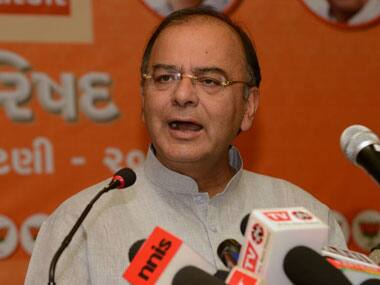History was made on 20 February this year when the Reserve Bank of India (RBI) and the finance ministry signed a monetary policy framework agreement under which the government will set the inflation target range, and the RBI will decide on the interest rates needed to achieve these targets.[caption id=“attachment_2133735” align=“alignleft” width=“380”]  Finance Minister Arun Jaitley. AFP[/caption] The agreement is historic because, for the first time ever, the Centre has clearly and formally ceded full autonomy to the RBI in the making of monetary policy. Even though this was often true in practice, this autonomy is now set in stone. The agreement states unambiguously: “The monetary policy framework in India shall be operated by the Reserve Bank.” The bank has been given a clear mandate. “The objective of monetary policy is to primarily maintain price stability, while keeping in mind the objective of growth.” In other words, low inflation first, growth next. Arun Jaitley deserves kudos for explicitly making this commitment from the government’s side. The goal set for the RBI is to maintain inflation in the range of 2-6 percent, as measured by the Consumer Price Index (CPI) from 2015-16 onwards. This does not mean CPI inflation cannot at any point cross 6 percent or fall below 2 percent, but it cannot do so for three consecutive quarters. Else, the RBI will be seen as having failed in monetary policy and have to provide an explanation why it failed. It also has to work out a remedial plan with a clear timeframe. This setting of an inflation band is also an extraordinary commitment on the part of the government to help achieve stable inflation. Far from leaving it all to the RBI, the agreement implicitly commits the government to a sensible fiscal policy too. If it does not do so, the RBI can wantonly raise interest rates, choke the credit markets and make government borrowing itself prohibitively expensive. Once the RBI is asked to meet an inflation target, it automatically means the government too has a vested interest in making the monetary policy work. Even though the agreement seems as hold the RBI accountable with no implied action on the government’s part, the reality is that power has been ceded to the central bank to raise rates even if growth is poor and inflation not so high. In the current situation, for example, where the CPI is at 5.11 percent, the RBI can well decide to hold rates because the CPI is still within striking distance of breaching the 6 percent upper limit. The only situation in which the RBI will feel compelled to cut rates is if CPI inflation falls under 4 percent for a couple of quarters, or if the CPI looks like hitting 2 percent. The Wholesale Prices Index is already in that territory (it is negative), but CPI may not get that low as fuel and food prices could always push it up. To be sure, this agreement will have to be revised once the government changes the RBI Act to constitute a Monetary Policy Committee (MPC) to decide rates and monetary action, but even then, power will rest with the MPC, in which the RBI Governor will be a key player. The 2013 report of the Justice BN Srikrishna Financial Sector Legislative Reforms Commission (FSLRC) had recommended the setting of an MPC, where the balance of votes will be slightly in favour of the government, but with the RBI Governor having a veto. The MPC structure suggested by FSLRC was to have seven members headed by the RBI Governor, one more member from the RBI Board, two members appointed by the government in consultation with the RBI Governor, and three more members appointed only by the government. The decisions of the MPC, which has to meet once every two months, have to be taken by majority vote, but the RBI governor can over-rule it “in exceptional and unusual circumstances” and provide an explanation for his action. What this means is that the RBI Governor will have enough authority to over-rule a decision of the MPC if he thinks it is wrong or overly influenced by government concerns, but he would not be able to do so endlessly because he cannot claim “exceptional and unusual circumstances” all the time. However, there is no reason to believe that even the government would want to pack the MPC with yes-men who will toe the North Block line on interest rates. This is because the MPC will be held to account just as the RBI Governor will be under the recently signed monetary policy framework agreement if inflation gets out of hand. The framework agreement is the bedrock on which real monetary policy is being built. The fact that a committee rather than just the Governor will be deciding rates means that its decisions will be a seen as authoritative and not individualistic. Monetary policy will have a credibility that it has never had before. And the finance ministry has established its own anti-inflationary intent by signing up.
Contrary to the general assumption, the monetary policy framework that assigns the task of management to the RBI is not one-sided. It implicitly commits the government too to a sensible fiscal policy, though this is not stated.
Advertisement
End of Article
Written by R Jagannathan
R Jagannathan is the Editor-in-Chief of Firstpost. see more


)

)
)
)
)
)
)
)
)



